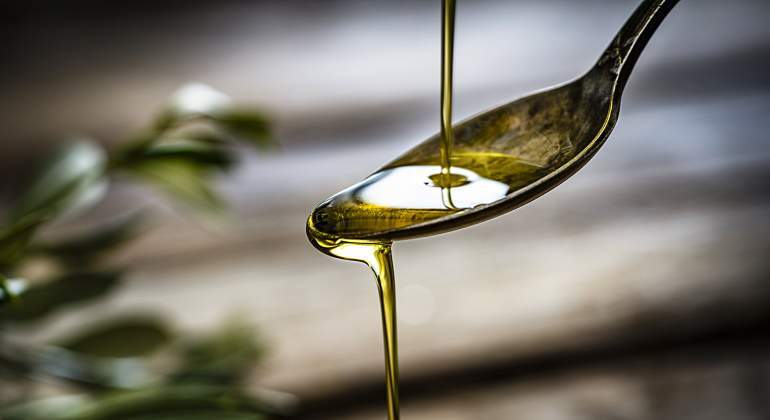The Spanish olive sector maintains that the regulations to improve good practices in the sector suffer from greater rigor with regard to two issues: traceability and tasting panels . This has been stated by the representatives of two of the main operators in the market.
The olive oil sector, represented by Dcoop (formerly Hojiblanca), a world producer of extra virgin olive oil and table olives, and Deoleo, a company that owns brands such as Carbonell, Bertolli or Carapelli, applaud the new quality standard of the olive oil.
This recent decree of the Ministry of Agriculture includes a series of requirements on traceability , elaboration and final packaging of the final product that will make it possible to place Spanish olive oil (70% of world production) as the highest quality worldwide and with the highest quality standards. maximum guarantees throughout the production process. It is, in short, a “code of good practices to reinforce the image of extra virgin olive oil (EVOO) and give prestige to this product before the consumer”, they point out from the Ministry.
Guarantee quality
Ignacio Silva, president and CEO of Deoleo, recalled that this standard seeks fundamentally two things, “to guarantee the level of quality that is supposed to this category and to provide maximum transparency to the consumer “, since, he says in his company They have been working for many years both on quality or on “putting the consumer at the center of decisions” and this standard works along these two lines. “It is a step forward that tries to lead from Spain a category in which I think some leadership has been lost in recent years.”
Olive oil, at risk from the current cataloging system
Olive oil, at risk from the current cataloging system
For his part, Antonio Luque, president of Dcoop, thinks that the “standard puts us on a good path” to guarantee the highest quality and in that aspect “the Ministry has done a good job” and that if the sector works in a coordinated ” we can get the maximum value of the product as possible “.
Luque believes that, for many years, the sector has only been concerned with being the maximum producer of olive oil, and that, with this standard, he will be able to say that “it is the largest producer of olive oil of the highest quality in the world “.
It also considers that for a long time the sector has forgotten about the needs of the consumer. ” We must explain to the consumer what this quality is like. Spain must lead in olive oil production and quality in the market .”
Regulatory flaws
Despite the benefits provided by the regulations, Silva believes that the law still has three areas for improvement. The first one has to do with traceability. ” We must guarantee traceability in all phases of production and many things happen in bottlers, there is a blending process of mixing, which is carried out in the laboratory, there is a bottling process … and there the law does not it is ambitious enough when it comes to controlling all phases within the facilities itself. “
In this sense, remember that the regulations refer to this and sets a period of four years so that full traceability can be applied. ” In this control of traceability there are dark areas in which we could take this control to a higher stage not without difficulties.”
Subjective tastings
Secondly, Silva believes that within the sector ” it makes no sense that we continue to be governed by subjective organoleptic tastings that have to do with practices from a century ago. This sector has to go to a definition of much more ambitious and many physical-chemical parameters. more demanding to define exactly what is the quality of this product “.
For him, ” tasting produces great legal uncertainty for many companies , because not the entire oil process is in our hands. When we manufacture a product and leave it in the hands of distribution, it may suffer, due to the heat, the transportation. .. and that is not the responsibility of the bottler himself. ” He insists that there must be external controls with physical-chemical tools that define what is the maximum quality of this product, since it is ” a pending issue “.
Finally, Silva stressed that this rule will require the administration to carry out the appropriate controls to be able to demonstrate to the consumer that transparency that the rule is seeking.
Luque also referred to the problem of tasting panels “due to the legal insecurity they cause, and that there must be” verifiable physical-chemical parameters “that are more demanding than those we have now and that can demonstrate that we have the best olive oil of the world “.
For Luque, the tasting panel has greatly damaged the image of the sector and this should be used so that each oil has its own special profile and better value the product, and does not serve for any white brand in the world to comply with the tasting panel as a the best the best in the world.
Certification
With regard to traceability, the president of Dcoop supports that the new regulations be complemented with product process certification that would be mandatory in some years. “But what is really important is that no operator has unorthodox actions and at any time serious problems arise in the image of the sector.”
Luque thinks that, “by controlling the mills, the olive oil extractors, the refineries and the bottling plants, we could give a product process certification with a total guarantee of traceability to the distribution and to the consumers “, Luque emphasizes.


